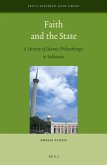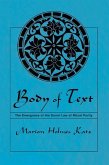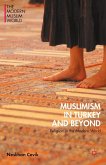The Branches of ¿m¿n is a translation of Mukhtäar Shübul ¿m¿n by Im¿m Qazw¿ni . It is an abridgement of the Branches of ¿m¿n by Im¿m Bayhaqi which in reality is a commentary of a single ¿ad¿th of Rasulull¿h ¿ in which he taught that "¿m¿n has sixty-odd, or seventy-odd branches, the highest and best of which is to declare that there is no one worthy of worship except All¿h, and the lowest of which is to remove something harmful from the path. And that modesty is a branch of ¿m¿n." Rasulullah ¿ captured and placed in the heart of his ummah the beauty of ¿m¿n. There are high branches and low branches. He mentioned three in the ¿ad¿th but indicated that there are many more. Im¿m Bayhaqi endeavoured to compile all the narrations related to ¿m¿n and its branches. This compilation reached six volumes and out of the grasp of the layman and more suited to the research scholars. Imam Qazw¿ni abridged the original into the short treatise before you which is accessible to all. When a Muslim strives to become a true and complete Mümin, then he must learn and recognise within himself the signs of ¿m¿n or the lack thereof. All¿h Tä¿la and his Messenger ¿ has told us these signs so we can struggle and pray that he blesses us with a perfect faith before we die. Branches of ¿m¿n is also a presentation of the fundamental beliefs of Isl¿m and can be utilised for teaching Aq¿da without resorting to historical polemical debates. Finally, Im¿m Qazw¿ni masterfully quotes from the greatest ¿¿li¿¿n of this ummah where required to show the spiritual significance of these branches.








![30 Days of Guidance: Learning Fundamental Principles of Islaam [Self-Study/Teacher's Edition]-Hardcover: A Short Journey Within the Work al 30 Days of Guidance: Learning Fundamental Principles of Islaam [Self-Study/Teacher's Edition]-Hardcover: A Short Journey Within the Work al](https://bilder.buecher.de/produkte/66/66537/66537969m.jpg)